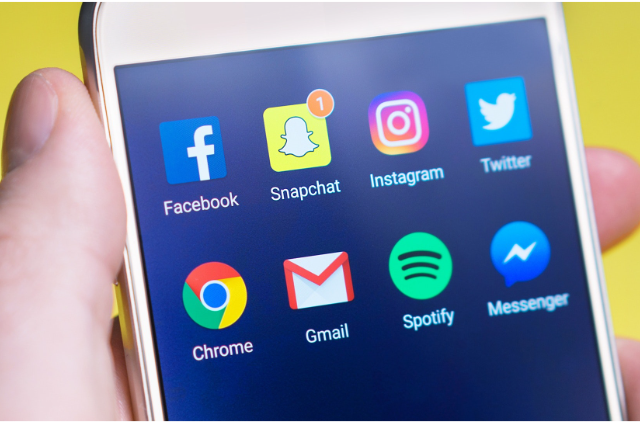Business and adaptation
The business world can be used as the definition for the word dynamic. The world is ever-changing, so businesses should too. What has been relevant in the last year, there is a high probability that it will not be suitable/trending this year. This is down to the fact that people are dynamic and they have a certain attention span and time-bound importance for a particular something.

So what does this have to do with businesses?
Well, everything. Businesses exist for the people. The ultimate reason for a business to exist is to provide the supply to the demands of the people. Thus, businesses should have their mission, vision and principles, but at the same time, they should be flexible enough to cater to the shift in needs of their customers/potential customers. Here adaptation comes into play.

Adaptation is the key to the success and growth of a business. Adapting does not necessarily mean changing your identity for the sake of survival. Rather, adaptation in the business world means that a business should be able to survive in the current market and the future market through the creation of proper brand value and having the ability to make minor/major changes in its business operations when needed.
Increasing rapidity of a shift in trends
Trends can be defined as phases of high popularity for anything, such as a song, movie, clothing style, etc. These phases can be long or short, depending on their capability of keeping the public entertained and interested. Usually, trends used to last for anywhere in between 2 months to over a year or so. But with the decreasing attention span of people, it is often considered a long-running trend, if a topic is able to be relevant for 3 months or more.

All of this has happened due to the change in consumption habits of consumers and the availability of a lot of resources at their fingertips. Previously there were less number of movies, less number of magazines, fewer types of advertisements and media, etc. This meant that if something had to become a trend, all it needed was a promotion from these few types of media and advertisements. And as there were fewer forms of media, what once became the trend, continued to be in trend for a considerably long period of time.
But with the advancement of technology, the internet came into existence. This gave rise to endless forms of media and marketing. As a result, people were now provided with a whole lot more to consume in the form of content than before. When this was combined with social media like Facebook, Instagram, and public platforms like Youtube and Twitter, the game totally changed.

Because of all of this, the rate of change in trend increased a lot. This was quite a new challenge for businesses. This meant that they had to constantly adapt their marketing strategy to the current trend of the people. This led to a massive increase in the marketing and advertisement budgets of the company.
But this was not something totally bad for the company either. This meant that there were more forms of media, which meant that the company had options to choose from. Also, with the increase in the number of internet users over the years, the penetration rate of these advertisements also increased a lot. In short, it was a challenge for the companies, not a drawback, and if one was able to overcome this challenge, the rewards were endless.
What is cancel culture?
Now here comes the negative part of the rise of social media and public platforms, the cancel culture. So what exactly is the cancel culture?

Well, cancel culture can be defined as the culture of boycotting, cancelling and disowning a particular something (usually a famous person, agenda or company) which is considered hateful, not worthy of public appreciation or disrespectful to a particular social, racial or gender group, by a group of individuals. Quite complex to understand right?
Let me help you understand this thing in detail.
So in cancel culture, there exist a group of people. This group of people browse through the internet in search of controversies/forced controversies. After they have found one, they preach that a particular topic, celebrity or company should be banned from public platforms and all other necessary places where they had an influential existence.

More often than not, there is an exaggeration or misinterpretation of the person/company/topic views, that are targeted by the cancel culture people. The sole motive of this group of people is to bring a famous entity down. So they often refer to the past of their targets and based on that, they try to defame their present existence. Basically, this culture is said to stand for intolerance of hateful views against any community, racial group, gender group or anything else, but in actuality, they are the ones spreading false hate among the common people.
How serious of a threat is cancel culture to business
If we talk about the impact of cancel culture from today’s perspective, then it does not seem to have much of a long lasting effect on companies. Yes, it may seem to be a big deal initially, with twenty thousand people writing tweets about you, sharing reels against your organization, etc. But within a very short span of time, it all disappears as abruptly as it had appeared, if the argument was baseless.
But yes, companies do face some consequences in the short run. Their sales may drop, there might be unrest within the company, and many other scenarios which are not too pleasant for the company, but at the same time, neither too harmful. But we are talking about business growth, a future-oriented subject. Hence, we must analyze the future of this cancel culture as well as its impact on businesses.
There might be 2 scenarios.

Firstly, the cancel culture loses its importance. In this case, people are able to see through the shallow and baseless arguments and attempts of defaming an organization. Here, the company is not at all affected by some random tweets or social media posts targeted at them. But this scenario is highly unlikely to happen because the current generation (Gen Z) is too much influenced by social media platforms and as a result, they often tend to gather news from social media, rather than doing their own research or following some trusted source.
The second scenario is quite the opposite of the first one. The cancel culture gains importance over time. This is a more likely scenario provided the current generation is as much (or more) influenced by social media in the future, as it is now. This is quite the doomsday for businesses. Even though they do good marketing and research, have a great product and enjoy good market share, they still have the risk of losing their reputation, thanks to the cancel culture.
Conclusion
Even though we have discussed two scenarios regarding the future of cancel culture and its impact on businesses, there might be other scenarios as well. This is because the above two scenarios are quite the extremes. So there may be other scenarios which are in between the above two.

But that does not change the fact that in today’s world, doing proper research, developing a good team and product and all other necessary functions of running a business is not often enough to run a successful business. We must take into consideration the business environment or the macro environment as well.
Even though cancel culture is not something logical or rational, businesses will never cease to exist because of these petty challenges. This article is less about businesses and more about the effect of misguidance or misinformation of people, on businesses. This is because one cannot avoid irrational or illogical happenings, as they do not follow any logical reasoning and can happen regardless of the previous deeds of the person/organization affected.
So in conclusion, businesses should neither be too concerned about this issue nor too relaxed. They should focus on their product and other business operations which will, at the end of the day, satisfy their ultimate users, the customers. And a satisfied customer is a returning customer. Hence if a company is able to build a loyal customer base, then it is unlikely that these petty issues will have much effect on the profitability and growth of the company.
